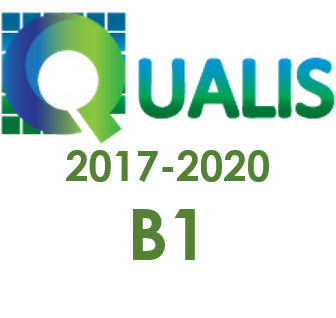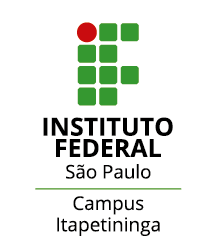Inclusive pedagogical practices used with students with Autism Spectrum Disorder
an analysis of the works presented at the XVI EDUCERE (2023)
Keywords:
Autism; XVI Educere; Special Education; School Inclusion; PUC/PRAbstract
Autism Spectrum Disorder (ASD) is characterized by changes in children's neurodevelopment, with impairment in communication, social interactions, and behavior. In this sense, this study aimed to investigate what has been produced on pedagogical practices developed with students with ASD. For this purpose, the works published in the XVI Educere annals (2023) were analyzed. This is a bibliographic study of a qualitative nature. It was found that, in total, there are 60 works available in the annals of the researched axis, of which nine of them (15%) comprise the present text. Of the nine works analyzed, five (55.6%) deal with issues of early childhood education, three (33.3%) are about the initial years of elementary school, and one (11.1%) refers to ASD in higher education. The results show that in the publications on ASD, the following themes were found: early stimulation of language, communication, and social interaction; school inclusion of children with ASD; the importance of storytelling for atypical child neurodevelopment; assistive technologies and inclusive pedagogical strategies for children with ASD; literacy for children with ASD; and students with ASD in higher education, among others. It was concluded that studies on pedagogical practices developed with students with ASD are still scarce in Brazil, especially when focused on high school and higher education. Furthermore, no specific studies involving mathematics and science content were found. However, these existing gaps indicate spaces in which it will be possible to expand research.
Downloads
References
AMERICAN PSYCHIATRIC ASSOCIATION (APA). DSM-5. Manual Diagnóstico e Estatístico de Transtornos Mentais. 5.ed. Porto Alegre: ARTMED.
BRASIL. Constituição (1988). Constituição da República Federativa do Brasil. Brasília, DF: Senado Federal, 1988. Disponível em:https://www.planalto.gov.br/ccivil_03/constituicao/constituicao.htm. Acesso em: 15 abr. 2024.
BRASIL. Ministério de Educação e Cultura. LDB - Lei nº 9.394, de 20 de dezembro de 1996. Disponível em: https://www.planalto.gov.br/ccivil_03/leis/l9394.htm. Acesso em: 17 abr. 2024.
BRASIL. Ministério da Educação. Secretaria de Educação Especial. Política Nacional de Educação Especial na perspectiva da Educação Inclusiva. Brasília: MEC/SEESP, 2008. Disponível em: http://portal.mec.gov.br/arquivos/pdf/politicaeducespecial.pdf´. Acesso em: 15 abr. 2024.
BRASIL. Resolução nº. 4, de 2 de outubro de 2009. Diretrizes Operacionais para o Atendimento Educacional especializado na Educação Básica, modalidade Educação especial, Brasília: MEC, 2009. Disponível em: http://portal.mec.gov.br/dmdocuments/rceb004_09.pdf. Acesso em: 28 jul. 2024.
BRASIL. Lei nº 12.764, de 27 de dezembro de 2012.Institui a Política Nacional de Proteção dos Direitos da Pessoa com Transtorno do Espectro Autista; e altera o § 3º do art. 98 da Lei nº 8.112, de 11 de dezembro de 1990. Disponível em: https://www.planalto.gov.br/ccivil_03/_ato2011-2014/2012/lei/l12764.htm. Acesso em: 28 jul. 2024.
BUENO, Sávio.; STREIECHEN, Eliziane Manosso; ANGELO, Cristiane Malinoski Pianaro. Inclusão de crianças com transtorno do espectro autista: a contação de histórias como alternativa. Anais Educere 2023. Disponível em: https://eventum.pucpr.br/educere/anais. Acesso em: 19 fev. 2024.
CAMPOS. Eri Cristina dos Anjos. A importância da interação social na educação infantil para o neurodesenvolvimento de crianças com transtorno do espectro autista-TEA. Anais Educere 2023. Disponível em: https://eventum.pucpr.br/educere/anais. Acesso em: 19 fev. 2024.
CORDEIRO, Irismar de Fátima.; UJIIE, Nájela Tavares. Retrato do transtorno do espectro autista na educação infantil na base Scielo: uma revisão de literatura. Anais Educere 2023. Disponível em: https://eventum.pucpr.br/educere/anais. Acesso em: 19 fev. 2024.
DOMINGUES, Pamela.; SILVA, Sandra Salete de Camargo.; BUENO, Sávio. A inclusão da criança do transtorno espectro autista (TEA) na educação infantil. Anais Educere 2023. Disponível em: https://eventum.pucpr.br/educere/anais. Acesso em: 19 fev. 2024.
GOMES, Bárbara Couto. Tecnologia assistiva na educação inclusiva: uso de aplicativo para
um aluno com TEA. Anais Educere 2023. Disponível em: https://eventum.pucpr.br/educere/anais. Acesso em: 19 fev. 2024.
GONÇALVES, Claudia Cristine Souza Appel.; GONÇALVES, Alex Oleandro. Transtorno do espectro autista (TEA): estratégias pedagógicas inclusivas. Anais Educere 2023. Disponível em: https://eventum.pucpr.br/educere/anais. Acesso em: 19 fev. 2024.
LEAL, Daniela.; MARTINS, Ângela Karina.; DAVILA, Cintia de Souza Klein. Significando as práticas pedagógicas adotadas na escola regular para crianças com TEA. Anais Educere 2023. Disponível em: https://eventum.pucpr.br/educere/anais. Acesso em: 19 fev. 2024.
OLIVEIRA, Lucilia Vernaschi de.; ABRANTES, Terezinha dos Anjos. Estudantes com TEA no ensino superior: o que dizem as pesquisas stricto sensu presentes na Capes? Anais Educere 2023. Disponível em: https://eventum.pucpr.br/educere/anais. Acesso em: 19 fev. 2024.
SCOS, Josemary.; SMANIOTTO, Giselle Cristina. Transtorno do espectro autista (TEA) e o processo de alfabetização. Anais Educere 2023. Disponível em: https://eventum.pucpr.br/educere/anais. Acesso em: 19 fev. 2024.
VIGOTSKI, Lev Semenovitch. A formação social da mente: o desenvolvimento dos processos psicológicos superiores. Michael Cole et. al. (et al). Tradução de José Cipolla Netto, Luiz Silveira Menna Barreto e Solange Castro Afeche. 7 ed. São Paulo: Martins Fontes, 2007.
Downloads
Published
How to Cite
Issue
Section
License
Copyright (c) 2024 Revista Internacional de Pesquisa em Didática das Ciências e Matemática

This work is licensed under a Creative Commons Attribution-NonCommercial-ShareAlike 4.0 International License.




